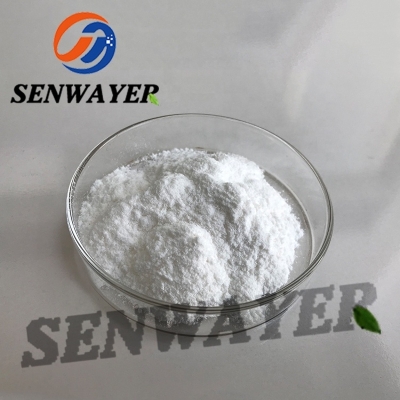Baite and halozyme launch new drug hyqvia for primary immunodeficiency (PI)
-
Last Update: 2014-10-22
-
Source: Internet
-
Author: User
Search more information of high quality chemicals, good prices and reliable suppliers, visit
www.echemi.com
Source: Baxter International and halozyme, a partner of Biovalley 2014-10-22, recently announced the launch of hypodermic injection (SC) drug hyqvia in the United States, which was approved by FDA in September this year for the treatment of primary immunodeficiency (PI) Hyqvia is composed of human normal immunoglobulin (Ig, 10%) and recombinant human hyaluronidase, which is beneficial to the dispersion and absorption of Ig under the skin Hyqvia is the first subcutaneous injection (SC) of immunoglobulin (Ig) once a month approved for the treatment of primary immunodeficiency (PI) It only needs to be injected subcutaneously once a month, and all the therapeutic doses can be delivered at a single injection site At present, most PI patients need to receive intravenous infusion treatment in hospital, while the current subcutaneous injection of Ig drugs needs to be injected once a week or every two weeks, and each injection needs to be injected at multiple sites Two years ago, in August 2012, FDA refused to approve hyqvia due to safety issues, including the potential impact of non neutralizing antibodies on reproduction, development and reproduction Non neutralizing antibody refers to the antibody that can bind to the target protein, but the binding area has nothing to do with the function of the protein After that, Baxter and halozyme submitted additional preclinical data at the request of FDA, and submitted a revised application for biological product license (BLA) on hyqvia in December 2013, and restarted the review process on the use of hyqvia in the treatment of adult patients with primary immunodeficiency (PI) The original BLA submission was based on data from a prospective, open label, non controlled, multicenter phase III clinical trial This study evaluated the safety and efficacy of hyqvia in the prevention of acute severe bacterial infection, and compared it with the pharmacokinetic parameters of intravenous immunoglobulin The aim of this study was to inject a 3 or 4 week dose of hyqvia into a subcutaneous injection site In this study, the rate of acute severe bacterial infection was 0.025/person/year, lower than the required therapeutic threshold of 1.0/person/year According to the tolerance evaluation data of hyqvia, the most common adverse reactions were infusion site reaction, headache, fatigue and fever Previously, hyqvia was approved by the European Union in May 2013 as an alternative therapy for primary immunodeficiency syndrome and adult patients (≥ 18 years old) with secondary hypogammaglobulinemia and recurrent infection with myeloma or chronic lymphocytic leukaemia The drug has been marketed in several European countries, including Germany, the Netherlands, Sweden, Norway, Denmark, Ireland and Italy.
This article is an English version of an article which is originally in the Chinese language on echemi.com and is provided for information purposes only.
This website makes no representation or warranty of any kind, either expressed or implied, as to the accuracy, completeness ownership or reliability of
the article or any translations thereof. If you have any concerns or complaints relating to the article, please send an email, providing a detailed
description of the concern or complaint, to
service@echemi.com. A staff member will contact you within 5 working days. Once verified, infringing content
will be removed immediately.







